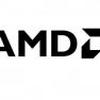AMD announced that it will design 64-bit ARM technology-based processors in addition to its x86 processors for multiple markets, starting with cloud and data center servers. AMD’s first ARM technology-based processor will be a highly-integrated, 64-bit multicore System-on-a-Chip (SoC) optimized for the dense, energy-efficient servers that now dominate the largest data centers and power the modern computing experience. The first ARM technology-based AMD Opteron™ processor is targeted for production in 2014 and will integrate the AMD SeaMicro Freedom™ supercompute fabric, the industry’s premier high-performance fabric.
AMD’s new design initiative addresses the growing demand to deliver better performance-per-watt for dense cloud computing solutions. Just as AMD introduced the industry’s first mainstream 64-bit x86 server solution with the AMD Opteron processor in 2003, AMD will be the only processor provider bridging the x86 and 64-bit ARM ecosystems to enable new levels of flexibility and drive optimal performance and power-efficiency for a range of enterprise workloads.
“AMD led the data center transition to mainstream 64-bit computing with AMD64, and with our ambidextrous strategy we will again lead the next major industry inflection point by driving the widespread adoption of energy-efficient 64-bit server processors based on both the x86 and ARM architectures,” said Rory Read, president and chief executive officer, AMD. “Through our collaboration with ARM, we are building on AMD’s rich IP portfolio, including our deep 64-bit processor knowledge and industry-leading AMD SeaMicro Freedom supercompute fabric, to offer the most flexible and complete processing solutions for the modern data center.”
“The industry needs to continuously innovate across markets to meet custumers’ ever-increasing demands, and ARM and our partners are enabling increasingly energy-efficient computing solutions to address these needs,” said Warren East, chief executive officer, ARM. “By collaborating with ARM, AMD is able to leverage its extraordinary portfolio of IP, including its AMD Freedom supercompute fabric, with ARM 64-bit processor cores to build solutions that deliver on this demand and transform the industry.”
The explosion of the data center has brought with it an opportunity to optimize compute with vastly different solutions. AMD is providing a compute ecosystem filled with choice, offering solutions based on AMD Opteron x86 CPUs, new server-class Accelerated Processing Units (APUs) that leverage Heterogeneous Systems Architecture (HSA), and new 64-bit ARM-based solutions.
This strategic partnership with ARM represents the next phase of AMD’s strategy to drive ambidextrous solutions in emerging mega data center solutions. In March, AMD announced the acquisition of SeaMicro, the leader in high-density, energy-efficient servers. With today’s announcement, AMD will integrate the AMD SeaMicro Freedom fabric across its leadership AMD Opteron, ARM- and x86-based processors, that will enable hundreds, or even thousands of processor clusters to be linked together to provide the most energy-efficient solutions.
“Over the past decade the computer industry has coalesced around two high-volume processor architectures – x86 for personal computers and servers, and ARM for mobile devices,” observed Nathan Brookwood, research fellow at Insight 64. “Over the next decade, the purveyors of these established architectures will each seek to extend their presence into market segments dominated by the other. The path on which AMD has now embarked will allow it to offer products based on both x86 and ARM architectures, a capability no other semiconductor manufacturer can likely match.”
At an event hosted by AMD today in San Francisco, representatives from Amazon, Dell, Facebook, and Red Hat participated in a panel discussion on opportunities created by ARM server solutions from AMD. A replay of the event can be found here as of 5pm Pacific time.

